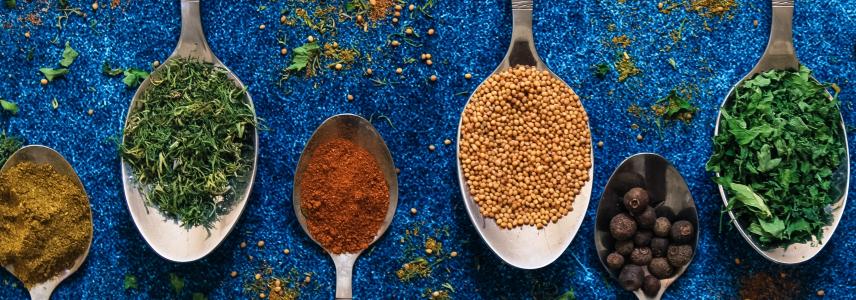Supply of spices and herbs seriously affected by COVID-19

The recent outbreak of the coronavirus has greatly affected people’s behaviour. On the demand side, industry and consumers are buying more and more shelf-stable food, including spices and herbs. On the supply side, the largest producing countries are not able to export due to border closures.
India and China shape international sourcing
COVID-19 measures in China and India have affected international spice trade dynamics. India has completely closed its borders, making it impossible to export any product. The same thing has happened in Vietnam. China, a major buyer of Indian spices, has experienced a sharp decline in demand due to the coronavirus outbreak.
This situation has caused the prices of several spices to drop. For example, within a week, the price of Indian cardamom dropped by 50%, and the price of Vietnamese pepper decreased by about 10%. Importers think that there may be some panic buying going on and that the prices will increase when markets open again.
Consumer demand increasing
One of the first reactions across Europe was the fear of scarcity. People started to buy huge amounts of shelf‑stable food, including condiments and spices. Recently, before Easter, demand for spices used for baking surged. This includes mixed spices and sweet spices, such as cinnamon, allspice, ginger and nutmeg.
Also, spices thought to be immune boosters, such as turmeric, ginger and garlic, are in strong demand. Despite higher retail prices for these spices, buying did not slow down. According to industry sources, the demand for turmeric and ginger for food supplements increased by 300%. The Indian government recently decided to invest in private-public partnerships to increase the production of turmeric to meet the growing demand. This decision was made during the Indian border lockdown.
Stay informed on COVID-19 updates
Many sources can provide you with more detailed information regularly. Some of the most notable examples are listed below:
- Mintec Coronavirus insights provides up-to-date information about the impact of COVID-19 on prices for the major spice categories.
- Spices Board of India has more information on Indian measures, related to spices, taken to reduce the effect of the COVID‑19 crisis.
- All India Spices Exporters Forum provides information about Indian measures related to COVID-19 and trade and movement of spices.
- American Spice Trade Association gives information about the effect of COVID-19 on spice related topics. This includes advice about preventive measures in the production of spices.
- Market Access Map keeps you informed on temporary trade measures taken by government authorities because of the COVID-19 pandemic.
- Nutra Ingredients provides consumer and market trends for bioactive ingredients and the influence of COVID-19 on these.
- Food Navigator has regular updates about COVID-19’s impact on food business, trends, consumer behaviours and company responses to the crisis.
- Food and Agricultural Organisation of the United Nations (FAO) gives you the answers from the FAO assessment on the global COVID-19 impact on food and agriculture. Also, each day you can read new novel coronavirus (COVID-19) FAO highlights.
- Tridge provides reports on border restrictions, logistics, regulations, and influences on import, export, domestic supply and demand. On Tridge, you can also monitor the impact of COVID-19 on the prices of a wide range of spices and herbs.
- Nielsen lets you track consumer behaviour changes caused by COVID-19 around the world. Understanding behavioural changes can help developing country exporters to Europe prepare for the future.
- IRI allows you to monitor the influence of the coronavirus pandemic on international business and retail sales.
- Rabobank publishes regular expert analysis and opinion pieces. Read about the impact of COVID-19 on food and agribusiness sectors in the Netherlands and Europe. Also, stay informed by listening to podcasts about the impact of the coronavirus on food retail, food service and packed food.
- Euromonitor has a special blog related to COVID-19. Read their regular updates on weekly prices and availability insights.
- MAERSK has a report with advice on how to maintain the supply chain and minimise the impact on your business in cases of crisis.
- Port of Rotterdam provides regular updates on the affect coronavirus has on cargo handling at the largest European port.
- International Monetary Fund has daily updates for each country on key policy responses for COVID‑19.
This news article was written for CBI by Autentika Global.
Stay informed
To stay informed on the latest developments in Spices and Herbs, make sure to subscribe to our newsletter.